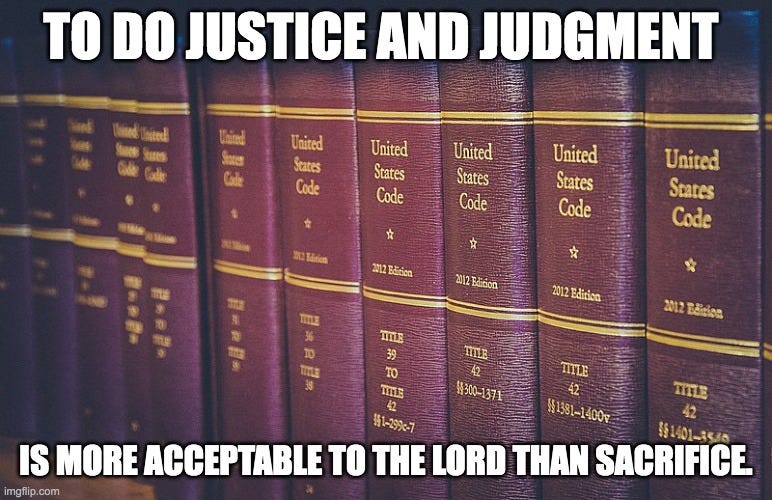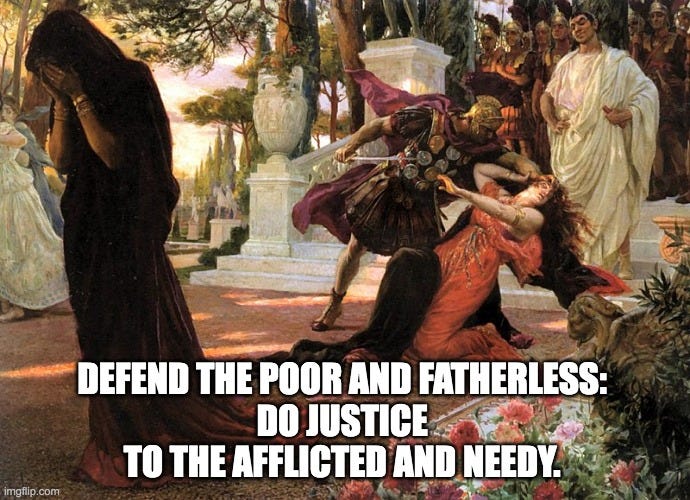I am sure my audience is familiar with the term ‘circular reasoning’. Whenever I read a post in favour of the word ‘legalism’ I almost always read it as a statement saying that it is important that we use the term ‘legalism’ because the term ‘legalism’ is important to use.
I am arguing that it is important that we don’t use the term ‘legalism’ (or its companion ‘legalist’) because the term is exceedingly unhelpful, misleading, and covers a host of false doctrines.
The way I see it, you can spend half your sermon defining ‘legalism’ in the way that you wish your audience to understand it, which will differ from the way they understand the term, and the way the world uses the term, and probably the way the very next speaker will use the term. Or you can define the problem you are trying to talk about using other words and get right into your sermon. The one will lead to confusion, the other to understanding.
I found this ‘definition’, for example:
Legalism exists when people attempt to secure righteousness in God’s sight by good works. Legalists believe that they can earn or merit God’s approval by performing the requirements of the law,” Thomas R. Schreiner said. A legalist believes that their good works and obedience to God affects their salvation. Legalism focuses on God’s laws more than relationship with God. It keeps external laws without a truly submitted heart. And legalism adds human rules to divine laws and treats them as divine.
https://www.christianity.com/wiki/christian-terms/what-is-legalism-definition-and-examples.html
Now, as I count it, that ‘definition’ includes no fewer than four, and quite possibly eight different definitions inside of it. Some of which are quite literally contradictory. Focusing on keeping God’s law and adding to God’s law, for example, are directly contradictory… as God’s law forbids us to add to it!
And are we talking about ‘good works’ or ‘God’s Law’? Are we talking about securing righteousness or gaining approval? Can we discuss the difference between ‘earning’ and ‘meriting’? Do we ‘affect’ our salvation through good works, or do we ‘secure’ it?
Legalism exists when people attempt to (1) secure righteousness in God’s sight by good works. Legalists believe that they can (2) earn or (3) merit God’s approval by performing the requirements of the law,” Thomas R. Schreiner said. A legalist believes that their good works and obedience to God (4) affects their salvation. Legalism focuses on God’s laws (5) more than relationship with God. (6)It keeps external laws without a truly submitted heart. (7) And legalism adds human rules to divine laws and (8) treats them as divine.
ibid
I looked it up, and Webster’s 1828 does not even define ‘legalism’. And the commentators use the term hardly at all. I believe that we can look at each of the above parts of the supposed definition of ‘legalism’ and come up with a term that is more accurate, and that doesn’t fall into the trap of being so massively equivocal.
Terms used in Scripture we are required to keep and defend. All other terms should be judged by their usefulness and accuracy. “Legalism”, in my opinion, fails on both counts. For the core Biblical meaning sometimes meant by that word, I would recommend ‘Sola Gratia’ for the positive and ‘Works Salvation’ for the negative. For the legitimate secondary meaning, I might suggest ‘phariseeism’ for the negative and ‘theonomy’ for the positive. “Monergism” and “Synergism” are also good terms for certain aspects of the term.
But the term ‘legalism’ is worse than useless. It miscommunicates every time it is used.





